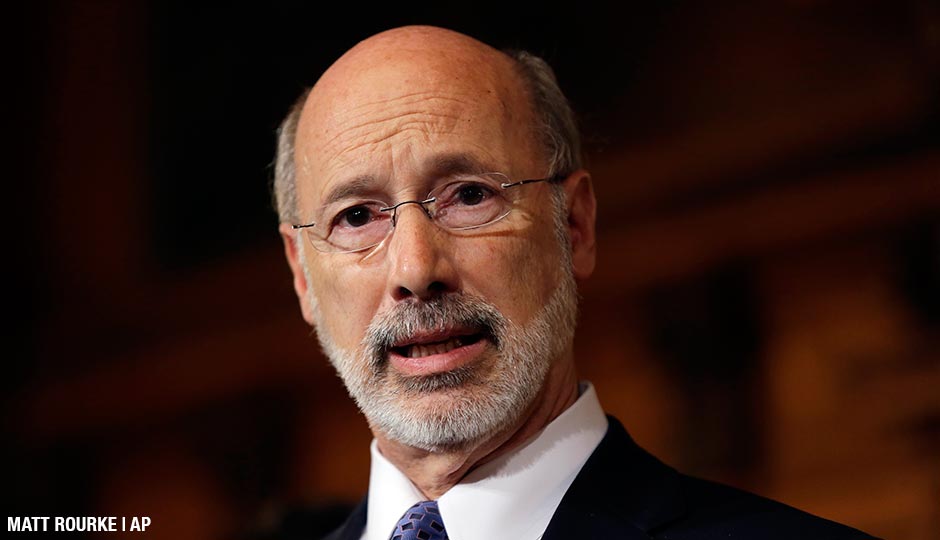State Should Pay for Gender-Reassignment Surgeries, Says Pa. Governor Wolf

Pennsylvania Gov. Tom Wolf speaks with members of the media Wednesday, Oct. 7, 2015, at the state Capitol in Harrisburg, Pa.
Pennsylvania Governor Tom Wolf is speaking out against the very state that he runs after the state-run Medicaid program said it wouldn’t pay for a gender-reassignment procedure for a 30-year-old transgender man who has since filed suit over the denial of coverage.
“The Pa. Code precludes coverage through Medicaid for gender confirmation medical care and surgical procedures,” said a Wolf spokesperson in a statement. “Governor Wolf believes this is wrong. Pennsylvania should not discriminate against any individual based on sexual orientation and gender identity and expression. The governor hopes to have a robust conversation with the legislature, community and all other parties regarding this issue to move the commonwealth forward.”
The northern New Jersey native, who previously worked as a schoolteacher in Delaware County, filed the lawsuit anonymously as a John Doe against Department of Health and Human Services Secretary Theodore “Ted” Dallas, attacking the Pennsylvania laws that discriminate against the trans community.
Section 1141.59 of the Pennsylvania Code details medical procedures not covered by the state.
According to the lawsuit, the anonymous transgender plaintiff has been diagnosed with gender dysphoria, commonly referred to as GD. In a person with GD, there is a major difference between the person’s expressed gender and the gender that others would assign to the person, according to American Psychiatric Association, and that conflict causes distress. The GD diagnosis itself is not without controversy. The plaintiff’s attorney, Chestnut Hill’s Julie Chovanes, compares GD to the expression of being a man trapped in a woman’s body, or vice versa, but in an extreme and distressful way.
One treatment for gender dysphoria in a transgender male — and the very one ordered by the plaintiff’s doctor — is an abdominal hysterectomy. Another commonly recommended treatment for gender dysphoria is hormone therapy, also excluded by the Pennsylvania law referenced above.
Pennsylvania’s Medicaid program does pay for hysterectomies for women, so the trans man is arguing that by denying his claim, the state is violating his rights for equal protection under the law and his right to be free from sex and transgender discrimination.
“I hope that this case will grant relief to our client and thousands of other Medicaid-eligible Pennsylvanians who are among the state’s neediest people,” says Chovanes, herself a trans woman. “We need to change the law, but we need to take it one step at a time.”
Although Wolf is sympathetic, the road to changing that law might not be an easy task, especially in such a large state with so many “red” counties. Consider that New York, Massachusetts, Oregon, California, Vermont, Minnesota and Washington D.C. are the only places that allow such surgeries to be covered under Medicaid.
Chovanes, executive director of the Trans Resource Foundation, believes that there could be as many as 16,000 Medicaid-eligible trans people in the state. Through Chovanes, her client declined to speak about the case.
Follow @VictorFiorillo on Twitter.


